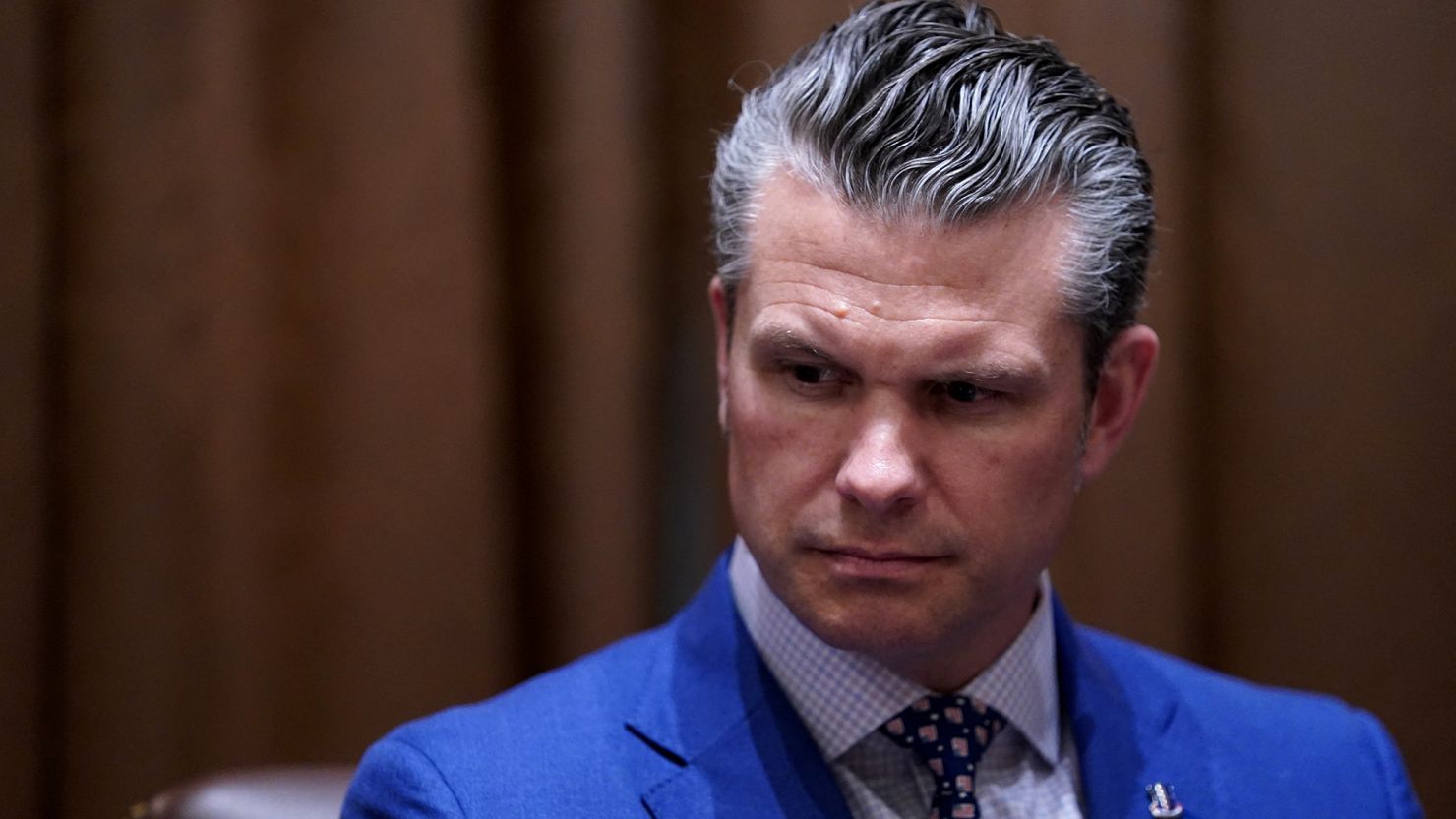Pete Hegseth Under Fire for Leaked Military Plans in Private Signal Chat

(WE) — Secretary of Defense Pete Hegseth is facing intense scrutiny after reports emerged that he may have shared classified U.S. military plans in an unauthorized group chat. According to multiple defense officials, Hegseth communicated details of active operations targeting Houthi militants in Yemen using a private Signal thread that included his wife, his brother, and his personal attorney — none of whom were officially cleared to access such sensitive information.
The classified plans reportedly included specific timelines for military airstrikes, troop movements, and tactical objectives in response to escalating Houthi attacks on international shipping in the Red Sea. The news has sent shockwaves through Washington, with top military and intelligence officials expressing grave concern over what they describe as a breach of both protocol and national security.
“This isn’t just a procedural error,” one senior Pentagon official told CNN. “This is potentially one of the most serious internal security lapses in recent memory.”
The Origins of the Secret Chat
The Signal group in question reportedly began as a small, informal network created to assist Hegseth during his Senate confirmation hearings. Initially composed of a few close advisers and family members, the group’s stated purpose was to coordinate talking points, respond to press inquiries, and share updates.
However, after Hegseth was confirmed and sworn in as Secretary of Defense, the group remained active. Over time, it reportedly evolved from a campaign-style messaging tool into a backchannel for high-level military discussions. According to sources familiar with the investigation, classified messages began appearing in the chat by mid-February — including operational plans for upcoming strikes on Houthi targets in Yemen and the Gulf of Aden.
The group included Jennifer Hegseth, Pete Hegseth’s wife; his brother Phil Hegseth, who currently works within the Department of Defense; and Tim Parlatore, a personal attorney known for previously representing high-profile political figures.
Parlatore and Phil Hegseth are believed to have some form of security clearance, though it remains unclear if that clearance extended to the specific operations being discussed. Jennifer Hegseth, however, does not work for the government and holds no known clearance, making her inclusion in discussions of active war plans especially problematic.
“Pete was treating this like a family group text,” said one former aide. “But this wasn’t a joke — it was national security.”
Discovery and Fallout
The existence of the private Signal group was uncovered by accident. In late March, National Security Adviser Mike Waltz reportedly sent a message intended for the official Cabinet group chat to a different thread that included a journalist from The Atlantic. That mistake triggered a broader review of communication practices at the highest levels of the Department of Defense.
During that review, investigators discovered the second, unauthorized group. Unlike the official chat, which includes only senior Cabinet members with appropriate clearances, the second group operated without oversight and appeared to mix personal and professional matters. It became clear that highly classified information had been sent from Hegseth’s personal device to this unapproved group — including war plans that were not yet finalized or declassified.
In response, the DoD Inspector General launched a formal investigation, seizing digital records and questioning staff members. At least 20 current and former defense personnel have reportedly been interviewed so far.
A Wave of Firings — and Pushback
The situation exploded on April 10, when Hegseth abruptly fired three top civilian aides: Dan Caldwell, a senior adviser known for his work with Concerned Veterans for America; Darin Selnick, a policy adviser with experience in veterans’ affairs; and Colin Carroll, a longtime DoD operative with experience in international operations.
All three deny any involvement in leaking information and claim they were terminated without cause. In a joint statement provided to media outlets, they defended their records:
“We categorically deny any suggestion that we leaked classified information. The notion is not only false — it’s insulting. We worked diligently to uphold the Department’s standards of confidentiality and transparency.”
The aides also noted that they were never given formal reasons for their dismissal. One of them reportedly was told offhandedly that he was “under investigation” but received no official documentation. Another said he was about to be cleared by internal security staff before being let go.
John Ullyot, a former White House and Pentagon press secretary who recently resigned from his advisory role at the Department of Defense, also spoke out about the chaos.
“This is what happens when leadership starts to panic,” Ullyot told CNN. “You get knee-jerk reactions, you get people fired without process, and you get scapegoating. The President deserves a steady hand at the Pentagon. Right now, he’s not getting that.”
Ullyot added that none of the terminated staff had been asked to take polygraph exams or provided with due process. “This wasn’t a leak investigation,” he said. “It was a purge.”
Jennifer Hegseth’s Role Sparks Outrage
Perhaps the most contentious aspect of the controversy is the role of Jennifer Hegseth, the Secretary’s wife. According to multiple insiders, she was not only included in the private Signal chat — she also actively participated in strategic discussions about military deployments, diplomatic meetings, and policy objectives.
“She wasn’t a bystander,” one senior aide said. “She offered her opinions, asked questions, and at times even challenged other participants in the chat.”
While spouses of Cabinet officials have historically had informal influence behind the scenes, direct access to classified operations is virtually unheard of. In this case, officials fear that Jennifer Hegseth may have been privy to sensitive material without any legal authority to receive it.
“It violates every principle of need-to-know access,” said a former intelligence officer. “The Secretary’s wife is not in the chain of command. She’s not even on staff. This is a clear breach of protocol.”
Some insiders suggest that Hegseth may have included his wife out of a desire for loyalty and moral support amid political tension in Washington. Others believe her involvement was simply a matter of poor judgment and blurred boundaries.
Read More:
- A Swearing-In Ceremony Turns Unforgettable — for All the Wrong Reasons
- Florida State University Shooter Identified as Deputy’s Son: 2 Killed, 6 Injured in Campus Attack
- Married Student Loan Borrowers Get Reprieve After Department of Education Walks Back Policy Change
An Atmosphere of Distrust and Paranoia
The revelations have created a toxic atmosphere inside the Pentagon. According to multiple sources, morale has collapsed in recent weeks as fears of retaliation and surveillance have taken hold. Several staffers report being asked to surrender their devices for inspection. Others have been pulled into surprise interviews with legal teams — sometimes without legal representation.
“There’s a full-on witch hunt,” said one mid-level staffer. “People are scared to talk, scared to message, scared to even show up.”
Chief of staff Joe Kasper, a longtime Hegseth ally, is reportedly leading the internal probe. Sources say he has pushed for polygraph testing for a wide group of staffers, though few high-level officials have been subjected to those exams.
Critics say the effort seems more focused on identifying critics than actual leakers.
“This isn’t about protecting secrets,” one source said. “It’s about punishing dissent.”
Legal and Political Implications
The potential legal fallout from this case is substantial. Under the Espionage Act, it is a federal crime to knowingly share classified defense information with unauthorized individuals. Violators can face criminal charges, including imprisonment.
Additionally, Executive Order 13526, which governs the classification and declassification of national security information, requires that classified material only be shared with those holding appropriate clearances and a demonstrated “need to know.”
If investigators determine that Hegseth willfully or recklessly shared classified data with his wife, brother, or attorney, he could face censure or removal from office. In extreme cases, he could be criminally referred by the Inspector General to the Department of Justice.
White House officials have so far declined to comment on the investigation. However, sources close to President Joe Biden say he is aware of the situation and has asked for updates.
“There’s real concern at the highest levels,” one senior administration official said. “The President wants accountability — and answers.”
What’s Next?
The investigation remains ongoing, with new subpoenas and staff interviews expected in the coming days. The Inspector General is said to be reviewing communications logs, clearance records, and digital backups of the Signal chats.
Hegseth has not yet issued a public statement on the controversy. However, officials say he continues to serve in his role and has not indicated plans to resign.
Despite that, pressure is mounting. Lawmakers on both sides of the aisle are quietly raising concerns. One House Armed Services Committee member told reporters that if the allegations are confirmed, Hegseth’s position may be “untenable.”
Meanwhile, allies in the defense community fear that the leak has already done real damage to America’s operational readiness in Yemen and the broader Middle East.
“Trust is everything in this job,” said a former Pentagon strategist. “Once it’s broken, it’s hard to get back.”
What began as a private Signal thread among family and friends may soon become a full-blown national scandal. As more details emerge, the questions grow louder: Who knew what? When did they know it? And who, ultimately, will be held responsible?
For now, Secretary Pete Hegseth remains in office. But the storm is far from over.ne wrong.















